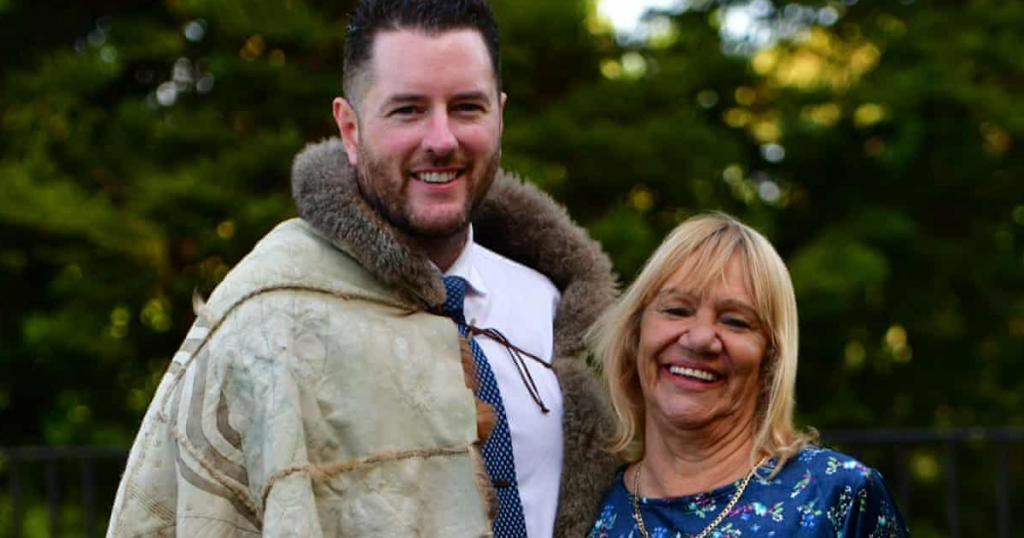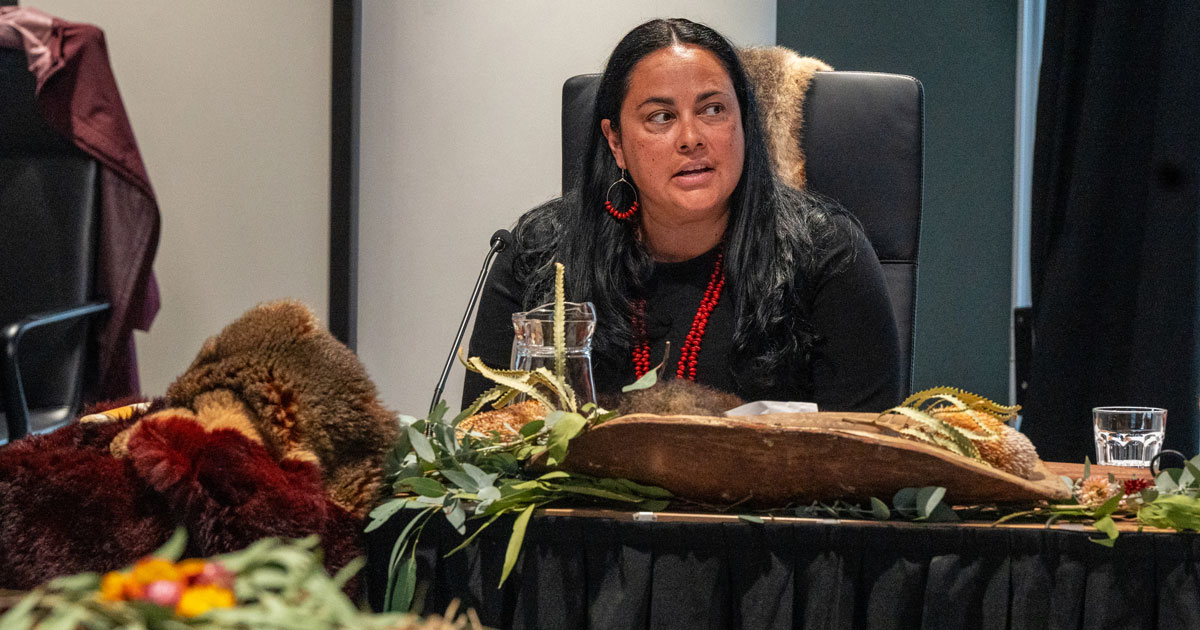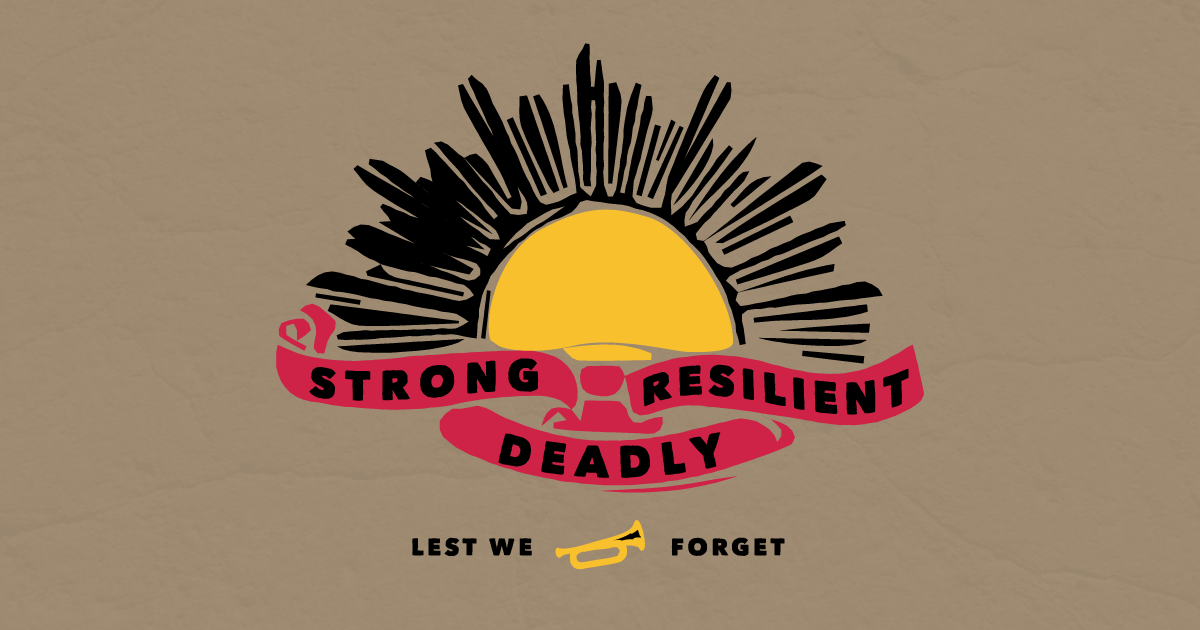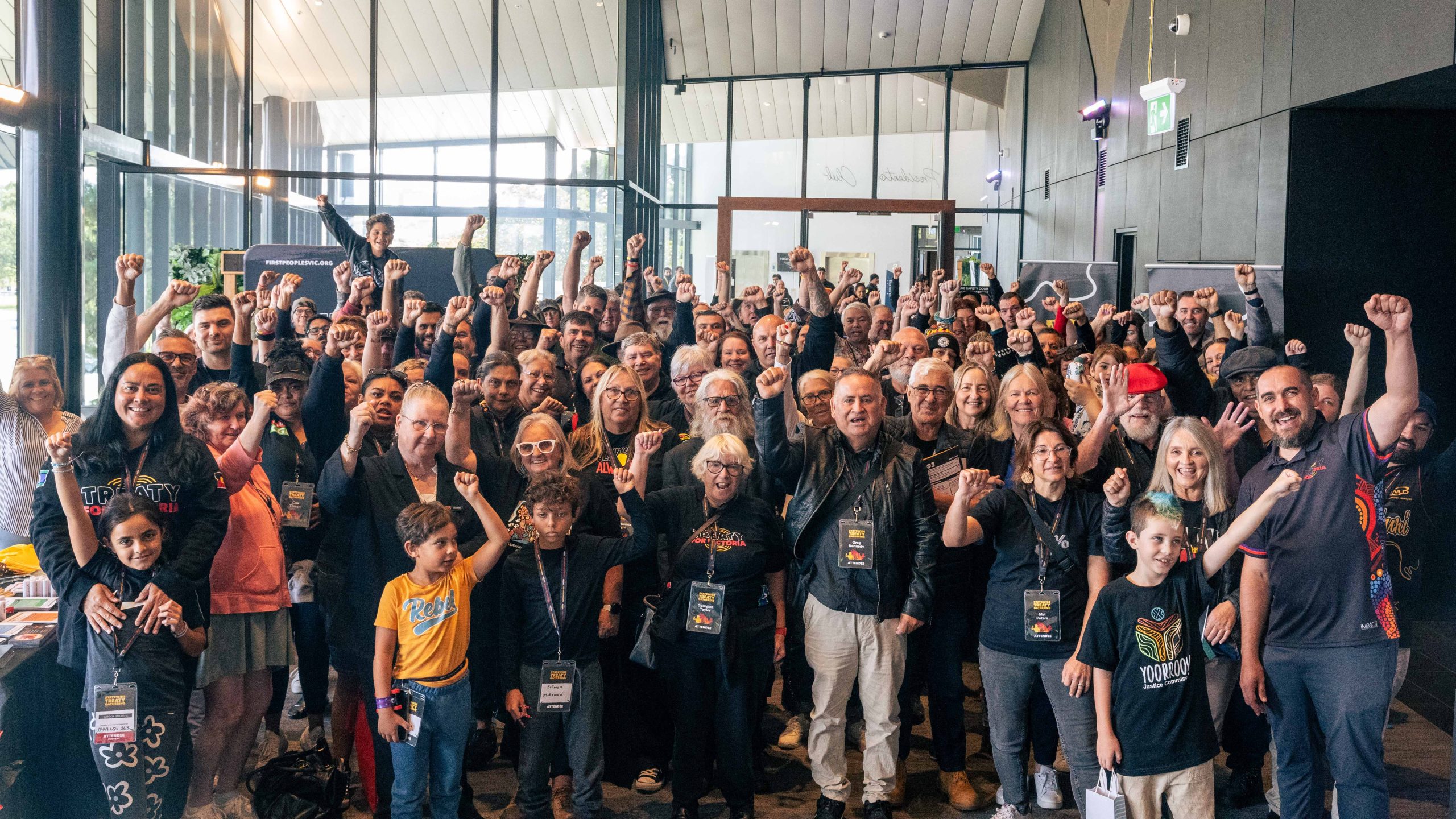
The principles of UNDRIP are reflected in the fight for Indigenous rights around the world. In Victoria, that means Treaty.
Having the freedom and power to make decisions that affect your life and community is a key aspect of leading a dignified life. It’s also at the heart of the United Nations Declaration on the Rights of Indigenous Peoples’ (UNDRIP), which was adopted by the UN Assembly this week 14 years ago. In Victoria, our people are embodying the foundation of UNDRIP – Indigenous self-determination. In doing so, we’re proud to carry on the work of our ancestors as we move towards Treaty in Victoria.
UNDRIP was a watershed moment and the culmination of 25 years of collaboration and negotiation between Indigenous peoples across the world.
While UNDRIP is a non-binding document, it has become a powerful tool in the fight for Indigenous rights and recognition globally. It finally gave us, as Indigenous peoples with unique but common experiences of colonisation and marginalisation, a shared language with which to demand our collective rights and a yardstick with which to push for a minimum standard of justice. This is where UNDRIP draws its strength and legitimacy.
We draw on the spirit of UNDRIP and its specific articles as First Peoples in Victoria as we call for equality and justice. As we journey towards Treaty, these principles help us assert our right to sel-determination: of our political status and our economic, social and cultural development. Indigenous peoples have the right to make decisions about issues that affect our own communities.
The very formation of the First Peoples’ Assembly is in and of itself a hopeful and bold act of self-determination. Treaty is about addressing past injustices, but it’s also much more than that – it’s our chance to address the power imbalances that have held many in our community back and to properly level the playing field.
It’s also about creating a better future together. A future in which our culture, the oldest continuous living culture in the world, is better recognised, celebrated – and, this is the part that gives us the most joy – shared by everyone that calls Victoria home. Treaty will help make Victoria a better and fairer place for everyone.
So, what does the shared journey ahead of us look like?
The structure of the First Peoples’ Assembly of Victoria is a mixture of reserved seating for formally recognised Traditional Owner groups and open seats appointed through general election. It’s a representative body of elected members. Any Aboriginal person 16 years or older who is a Traditional Owner of Country in Victoria, or who has lived in Victoria for at least three of the past five years can join our electoral roll and have a say in our Assembly elections. Our electoral roll is exactly that – ours. It was made by Aboriginal people, for Aboriginal people and is completely independent from the Government.
The Assembly’s job is to lay the groundwork for future Treaty-making and to ensure First Peoples in Victoria are ‘Treaty-ready’ – that we have the resources and capacity to negotiate with the State Government on equal footing.
We’ve made substantial progress already. So far, we’ve secured the creation of the Yoo-rrook Justice Commission – a formal truth-telling process about injustices experienced by First Peoples since colonisation. In addition to providing an evidence base about the injustices caused and continued by structural power imbalances and racism, truth-telling will enable us to begin a process of healing. The testimonies given will become part of the State’s official records and the Commission will be tasked with recommending widespread reforms.
The Assembly is also looking to establish a Treaty Authority. This will involve a transfer, at least in part, of power away from the State so we can have an independent umpire to facilitate the negotiations, carry out required research and help resolve any disputes that might arise.
The Assembly has decided there must be both a State-wide Treaty, negotiated by future elected representatives, and local, Traditional Owner Treaties, negotiated by individual groups. A State-wide Treaty might create an Aboriginal body to create and administer laws and budgets for Aboriginal issues or provide oversight and advice to parliament. Local Treaties might cover local issues like lands and waters, languages, education or cultural heritage management.
The Assembly is inclusive and represents the diverse views within Victoria’s Aboriginal community. We take care to make sure everyone feels welcomed and everyone is heard. Ultimately, our strength is drawn from our community, or lore, law and culture, so our door is always open. We simply ask that everyone enters with respect for our Elders.
Our members will be busy yarning again with community, in the city and towns, on country, over the phone, in zoom meetings – whatever it takes in these times of pandemic. We need to get this right.
Although the finer details of our community’s needs and desires are yet to be articulated, some things are certain. Treaty won’t be symbolic. We want, and will get, meaningful structural reform to improve the lives of our people.
We know that having the power to make decisions about our own lives and communities is how we can create a better future for our children. That’s why self-determination is the driving force behind everything we do on the journey to Treaty.
The path to Treaty might be a long one, but it’s also a wide path and there’s room for everyone to walk with us.
We’re grateful to UNDRIP for providing us with another tool in our shared struggle for Indigenous rights. Ultimately, however, our success will rely on our peoples’ resilience and government’s willingness to come to the negotiating table with an open mind and a commitment to create a better and fairer future for everyone.
Treaty will re-empower First Peoples in Victoria, but the process will also help bring the whole state together. Whether your family has called Victoria home for 5 years or 50,000 years, this is a journey for all.
Opinion piece by Aunty Geraldine Atkinson & Marcus Stewart, Co-Chairs of the First Peoples’ Assembly of Victoria
For media enquiries and further information, please contact us.



